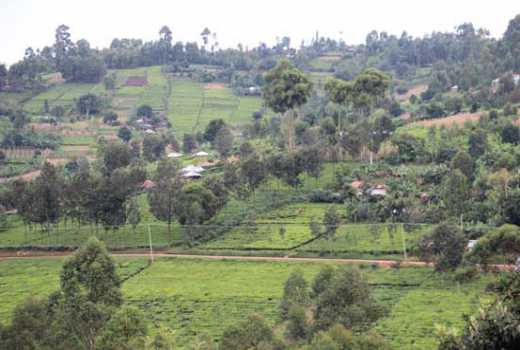×
The Standard e-Paper
Fearless, Trusted News

KISII, KENYA: The undulating green hills give Kisii County a perfect view. From a far, Kisii looks like a farming community at peace with itself.
The tea, maize and coffee plantations spread as far as the eye can see. But underneath this beauty lies social and economic trouble.







